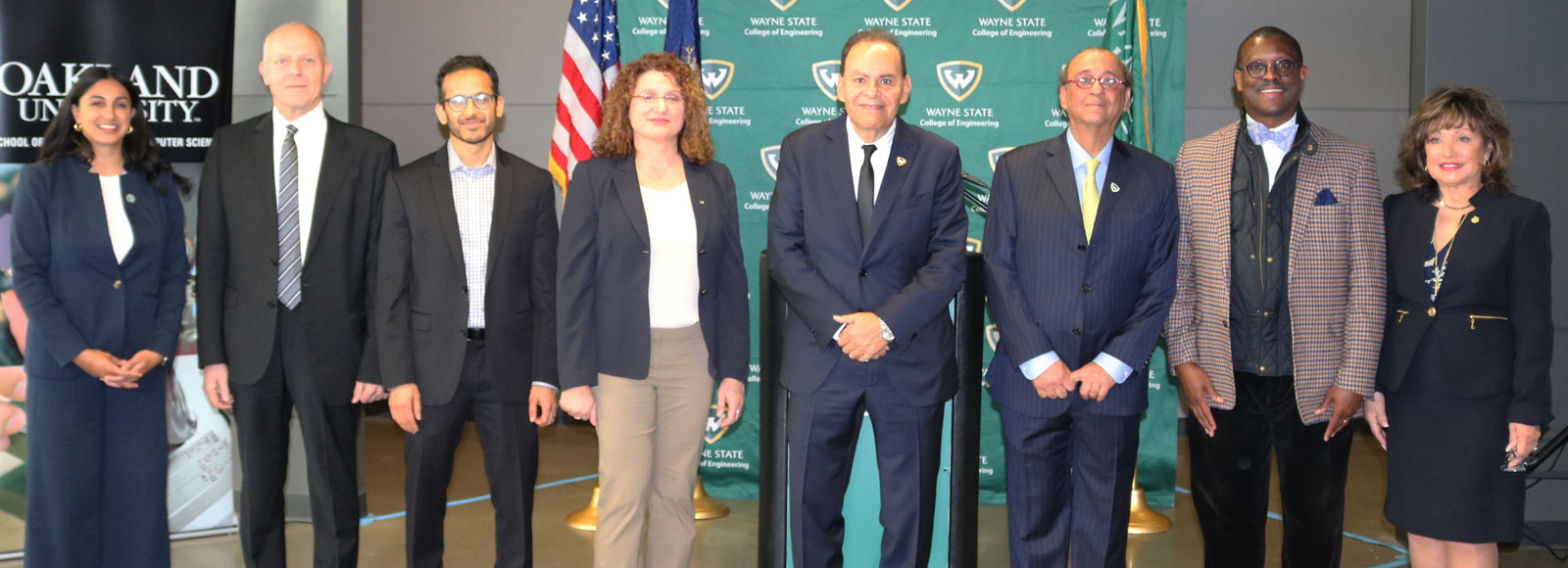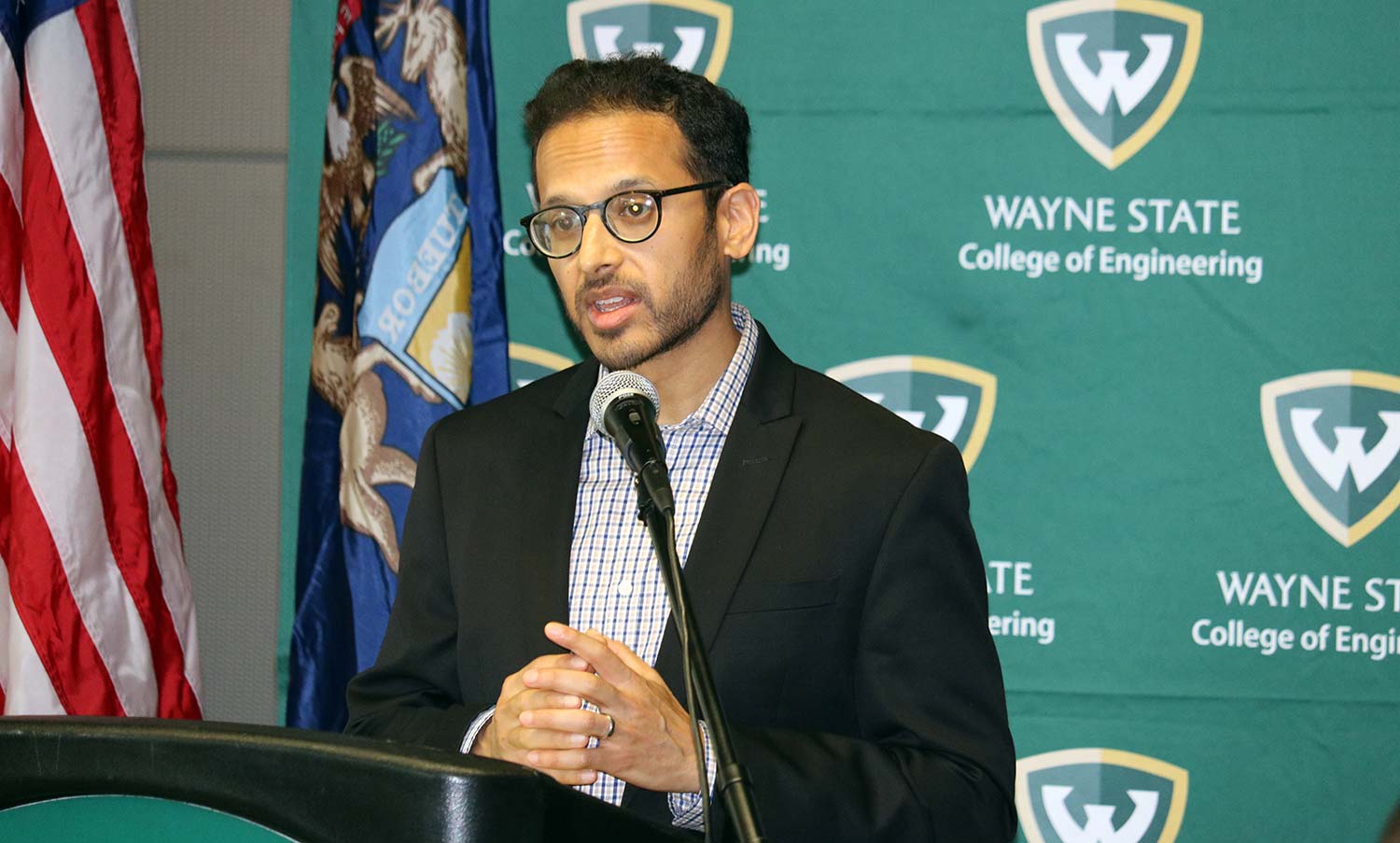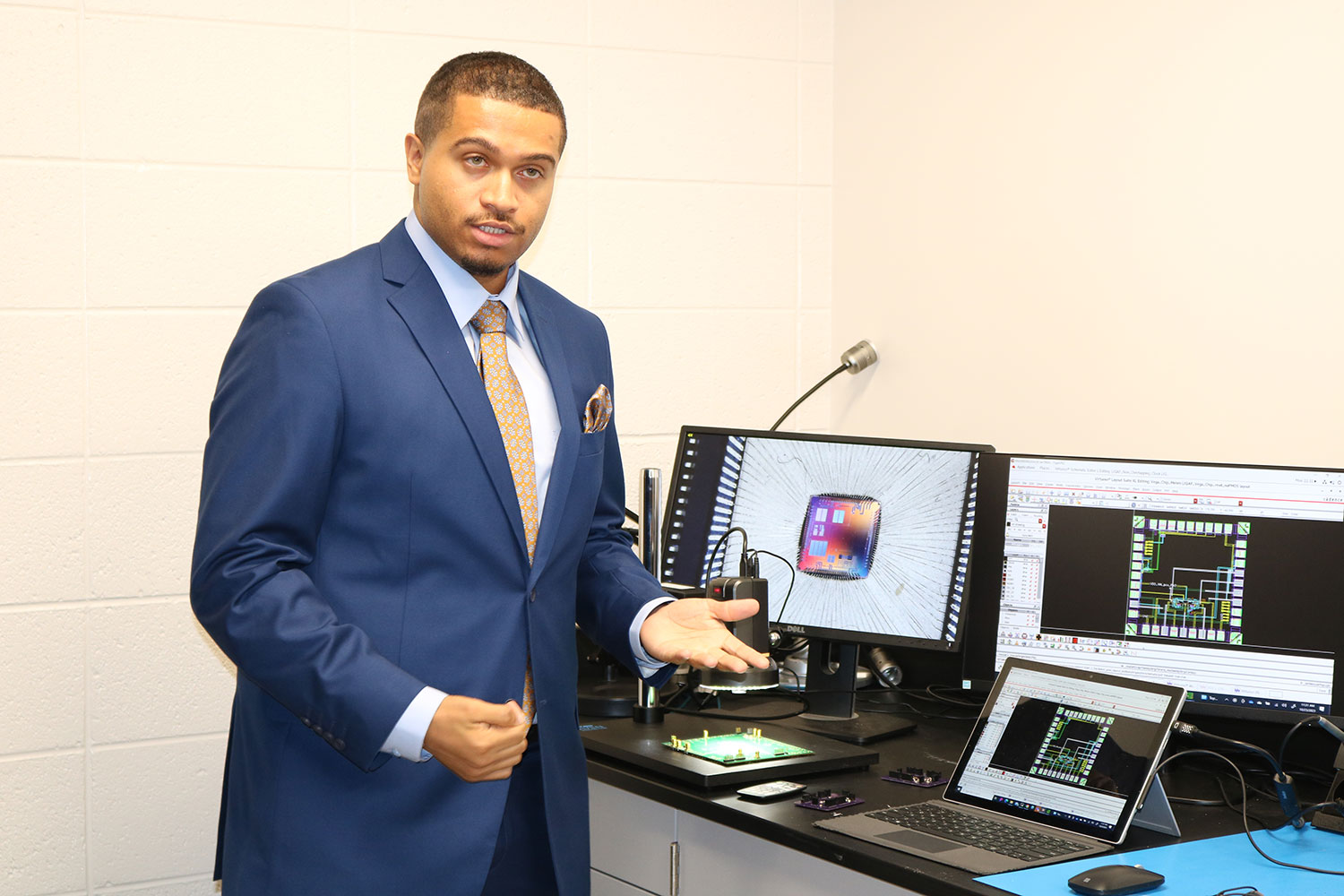Wayne State joins MEDC and local universities to expand semiconductor education and training in Southeast Michigan

Wayne State University welcomed officials from the Michigan Economic Development Corporation (MEDC) and three other higher education institutions to its Midtown Detroit campus this week for an announcement of the largest investment in state history to expand semiconductor education and workforce training resources.
More than $1.1 million in MEDC grants and matching funds will support the launch of new Wayne State programs led by Assistant Professor Gozde Tutuncuoglu and Professor Amar Basu from the Department of Electrical and Computer Engineering in an effort to develop the future workforce in the semiconductor industry. MEDC is investing more than $3.6 million combined in this domain, including more than $320,000 for Oakland University, $150,000 for Washtenaw Community College and $140,000 for the University of Michigan.
The primary objective is to keep the state of Michigan among the top regions for semiconductor talent, solutions and growth.
“These types of collaborations require strong private and public partnerships, and thoughtful strategic investments like those made by Governor Gretchen Whitmer, Lieutenant Governor Garlin Gilchrist and the MEDC,” said Wayne State President Kimberly Andrews Espy, Ph.D., who noted that more than 75% of Wayne State graduates remain to live and work in the state. “Now is truly the time for us to come together to advance Michigan's position in this race for fostering a diverse talent pipeline in this critical industry.”

Wayne State is a preeminent urban research university with strong ties to Michigan's automotive industry, in which the demand for semiconductors and microelectronics essential components — especially for electric vehicles — is growing. This need, amplified by the chip shortage amid the COVID-19 pandemic as well as the desire to establish U.S. self-reliance in semiconductor manufacturing, makes the development of skilled workers in this domain even more critical.
“Our focus is to provide accessible and industry relevant training to equip students and workers with the knowledge and skills necessary to excel in these high-demand, high-paying sectors,” said Ali Abolmaali, dean of the Wayne State College of Engineering. “Opportunities like this one stand to benefit all of us because they help to keep one of Michigan's most precious resources — our talent — right here in Michigan.”
The three new programs created through MEDC’s Semi Higher Education Initiative will not only allow current and incoming Wayne State students to explore emerging career possibilities in this space, but will expand Wayne State’s outreach and accessibility to middle and high school students, including those in underserved communities.
“We will train visiting students on how to use advanced software tools to design very complex chips, having millions and millions of transistors,” said Mohammed Ismail, professor and chair of electrical and computer engineering. “We will also train them to test and validate the performance of these complex chips targeting automotive, biomedical and wireless communication applications.”
Tutuncuoglu is the principal investigator on a project entitled CareerCraft. Expected to launch in 2024, CareerCraft is a series of industry-aligned, stackable certificate programs intended to bridge the gap between traditional academic curricula and rapidly evolving industry requirements, equipping individuals with the necessary skills and expertise to integrate novel semiconductor-based technologies in the automotive industry. The flexibility offered with this program, including online coursework, will best serve working professionals.
CareerCraft’s co-PIs, all from the Department of Electrical and Computer Engineering, include Basu, Professor Caisheng Wang, Assistant Professor Mohammad Alhawari and Professor Yong Xu.
A second project, called PCBCraft, led by Basu, is the state’s first hands-on certificate program to train engineers in printed circuit board (PCB) design, manufacturing and testing. PCBs are electronic boards on which semiconductor chips such as microcontrollers, sensors, actuators and wireless radios are interconnected, assembled and packaged into functional modules. A modern vehicle has more than 100 PCBs containing more than 1,500 semiconductor chips that perform critical functions like engine control, safety systems, autonomous driving and electric drivetrains.
The project’s co-PIs are Tutuncuoglu, Alhawari, Wang and Ismail.

Tutuncuoglu is also the PI on a third project focused on educational outreach. Semiconductor Stars is an experiential learning program that will feature lab visits, training sessions and other hands-on activities to teach middle and high school students about microfabrication processes, experimental design, electronics hardware and coding.
In the spirit of supporting diversity and inclusion, Semiconductor Stars will reach a deeper pool of students in the community by delivering interactive sessions during Wayne State’s annual STEM Day, offering assistance to help students overcome financial barriers, targeting schools and community organizations with limited resources, and establishing partnerships with nonprofit organizations to provide additional mentoring.
“It is crucial that we inspire younger generations to pursue careers in semiconductor-related fields in order to establish a sustainable talent pipeline in the long term,” said Tutuncuoglu.
Co-PIs include Dimitrios Sounas, assistant professor of electrical and computer engineering; Camille Bishop, assistant professor of chemical engineering and materials science; and Leela Mohana Reddy Arava, professor of mechanical engineering and associate dean for research and graduate studies.
The MEDC’s aim is to offer state-of-the-art learning and high-paying, high-tech career opportunities in the surging semiconductor industry with a focus on serving students and workers across the metro Detroit region. The MEDC Talent Solutions division goal is to co-invest alongside partners dedicated to building a world-class talent pipeline for semiconductor roles in the state of Michigan.
Students and working professionals interested in the CareerCraft and PCBCraft training programs may reach out to ece@wayne.edu.